INTRODUCTION
A three days’ workshop was held with lectures, exercises, assignments, knowledge sharing and problem-solving ideas from experts and the stakeholders of geothermal development in Indonesia. The targeted audience of the course constituted of practitioners, government officials from varied ministries, investors and companies. The workshop was held from September 11th - 13th, 2017, at the premises of PPSDM KEBTKE Building, Jakarta.
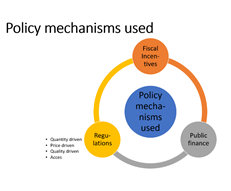
The goal of the workshop was to provide the participants with a broader perspective of the renewable energy market and understanding the policy framework, thereby giving insight in tools and methodologies to reach the geothermal policy targets. The workshop also included several presentations from geothermal stakeholders in Indonesia regarding regulations, knowledge sharing and problem-solving ideas. While many obstacles remain to expedite geothermal development projects in Indonesia, part of the problems found related to policy making in regulations and tariffs, but also to the collaboration between stakeholders. Therefore, the workshop targeted a deeper understanding and communication between geothermal stakeholders.
The learning objective of the workshop was to provide participants with a deeper insight in government policy and decision-making processes. Methodologies and best practices were discussed that can be applied to developing new and updating existing policies, as well as to expediting the license application and granting process. The current status of the geothermal industry in Indonesia was reviewed, as well as problems concerning its further development.
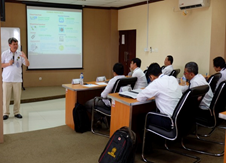
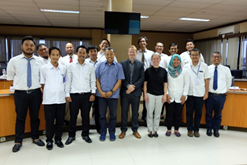
Three days’ workshop on government policy and decision-making
RELEVANCE FOR AND APPLICABILITY TO INDONESIA
Based on its most recent geothermal resource mapping and evaluation, Indonesia has an estimated geothermal energy potential of 29 GW. As of 2014, only 1.44 GW of this potential is being exploited, representing some 5% of its potential. Indonesia has the ambition to realise 7.2 GW in 2025, and 17.5 GW in 2050.
However, major challenges for realizing this geothermal potential are the high initial risks and investment costs, which to a large extent is due to the technical risk of initial wells having a relatively low success rate. With learning, i.e. as the resource is being developed, this drilling success rate on average increases gradually, but how this will reveal itself in a given case is initially very uncertain. The objective of the training was to give methods and tools to manage and control the high initial investment costs and risks. Therefore, this training addressed four key elements supporting the commercial development of geothermal resources, viz.
- Access to a comprehensive range of sufficiently accurate geothermal resource data and other relevant information;
- The development of effective and dedicated governmental institutions;
- The development of supportive policies and regulations;
- Facilitating access to appropriate financing opportunities for the geothermal project developer.
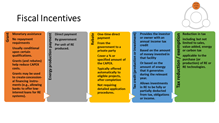
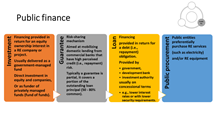
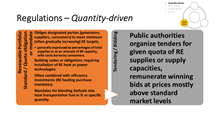
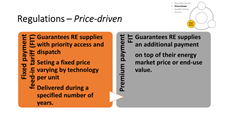
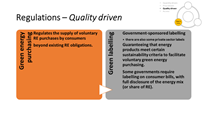
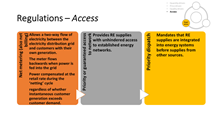
Policy instruments
GEOCAP ACTIVITY IN THIS TOPIC
The workshop gathered a group of Indonesia’s geothermal stakeholders from several institutions. Representatives from the government (Ministry of Energy and Mineral Resources/MEMR, Ministry of Environment & Forestry, Jawa Barat government), PLN (State Owned Electricity Enterprise), World Bank, PT Sarana Multi Infrastructure (a state-owned firm under the Ministry of Finance that manage the country’s geothermal fund), National Park, as well geothermal developers from PGE (Pertamina Geothermal Energy) and Geodipa joined this workshop as speakers and participants.
Based on feedback by the participants, the workshop has given them a deeper insight into the various geothermal project phases, decision-making processes, policy cycles and instruments, as well as the risks related with geothermal development. The stakeholder gaming exercise has given the participants a broader perspective on and deeper understanding of the geothermal resource development process. Interactive discussions between the participants of a varied background and institutions encouraged them to critically review the current conditions of geothermal development in Indonesia.
Participants also made valuable suggestions for conducting similar events in future, including more local content on Policy Making and Decision Making for geothermal project development. Clearly, there is a strong desire for more knowledge sharing and joint problem solving for Indonesian geothermal development cases.
The workshop was structured along the following topics:
- The energy landscape
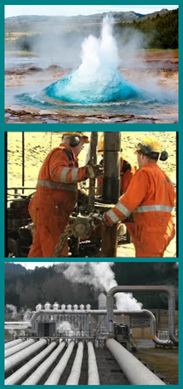
- Outlook Indonesian energy mix
- Framing the problem
- Geothermal Policy making
- Policy cycle: Learning & updating
- Geothermal plant project phases
- Decision gates and criteria
- Methodologies and processes
- Risks versus uncertainties
- Types of risks (financial/technical)
- Decision tree analysis
- Creating a good investment climate
- Transparent processing
- Incremental development
Materials
CONTACT
- Ali Ashat (ITB)
- Rianne 't Hoen (DNVGL)

